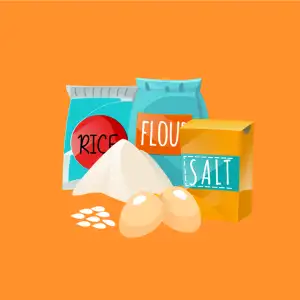Master the Art of Cleaning a Cast Iron Pan: Essential Tips for Home Cooks

- Introduction to cleaning a cast iron pan
- Gather necessary supplies for cleaning
- Preparing the cast iron pan for cleaning
- Cleaning the cast iron pan with hot water and a brush
- Removing stubborn food residue with salt and oil
- Drying the cast iron pan thoroughly
- Applying a thin layer of oil to prevent rusting
- Storing the cast iron pan properly
- Tips for maintaining the longevity of a cast iron pan
- Conclusion and final thoughts on cleaning a cast iron pan
Introduction to cleaning a cast iron pan
Introduction to cleaning a cast iron pan:
Cleaning a cast iron pan may seem like a daunting task, but with the right techniques and tools, it can be a breeze. Cast iron pans are beloved by home cooks for their ability to retain heat and create a perfect sear. However, they require special care to maintain their seasoning and prevent rusting. In this article, we will guide you through the essential steps to master the art of cleaning a cast iron pan. By following these tips, you can ensure that your cast iron pan remains in great condition for years to come. So let's dive in and discover the secrets to keeping your cast iron pan spotless and ready for your next culinary adventure!
Gather necessary supplies for cleaning
To effectively clean a cast iron pan, it is important to gather the necessary supplies beforehand. Here are the essential items you will need:
1. Hot water: Make sure you have access to hot water for cleaning the pan. This will help loosen any food particles and make the cleaning process easier.
2. Brush or sponge: Use a stiff-bristled brush or sponge specifically designed for cleaning cast iron pans. Avoid using metal scrubbers or abrasive cleaners as they can damage the pan's seasoning.
3. Salt: Keep some coarse salt on hand as it can be used to remove stubborn food residue without scratching the surface of the pan.
4. Cooking oil: Choose a high-smoke point oil such as vegetable oil, canola oil, or flaxseed oil for seasoning and preventing rusting after cleaning.
By having these supplies ready, you'll be well-prepared to tackle the task of cleaning your cast iron pan effectively and efficiently.
Preparing the cast iron pan for cleaning
Before you begin the cleaning process, it's important to properly prepare your cast iron pan. Start by allowing the pan to cool down completely after use. This will prevent any potential accidents or burns during the cleaning process.
Next, gently scrape off any excess food residue using a wooden spatula or a nylon brush. Be careful not to use anything abrasive that could damage the seasoning of the pan.
Once you've removed the larger food particles, rinse the pan under hot water. Avoid using soap at this stage as it can strip away the seasoning. Instead, rely on hot water and gentle scrubbing to remove any remaining debris.
If there are still stubborn bits of food stuck to the surface, you can create a paste using coarse salt and a little bit of water. Apply this paste to the affected areas and scrub gently with a brush or sponge.
After you've thoroughly cleaned the pan, rinse it again under hot water to remove any salt residue. Make sure all traces of food and cleaning agents are gone before proceeding to dry the pan.
By taking these steps to prepare your cast iron pan for cleaning, you'll ensure that it's ready for the next stage of the process: removing stubborn food residue with salt and oil.
Cleaning the cast iron pan with hot water and a brush
Cleaning the cast iron pan with hot water and a brush is an important step in maintaining its quality. After each use, allow the pan to cool down slightly before cleaning. Then, rinse it under hot water to remove any loose food particles. Using a stiff-bristled brush, scrub the surface of the pan in circular motions to remove any stubborn residue. Avoid using soap as it can strip away the seasoning of the pan. Once clean, rinse thoroughly and move on to the next step of drying the pan.
Removing stubborn food residue with salt and oil
Removing stubborn food residue with salt and oil is an effective method to restore the pristine condition of your cast iron pan. After cleaning the pan with hot water and a brush, sprinkle a generous amount of coarse salt onto the surface. The abrasive texture of the salt helps to loosen any remaining food particles. Then, drizzle a small amount of oil onto the salted surface. Using a paper towel or clean cloth, vigorously scrub the pan in circular motions, ensuring that the salt and oil mixture reaches every corner. This gentle yet powerful combination will help lift off any stubborn residue without damaging the seasoning of your pan. Once you're satisfied with the results, rinse off the salt and oil mixture under hot water and proceed to dry the pan thoroughly before applying a thin layer of oil for protection against rusting.
Drying the cast iron pan thoroughly
Drying the cast iron pan thoroughly is a crucial step to prevent rusting. After rinsing off any remaining soap or residue, use a clean towel or paper towels to dry the pan completely. It's important to ensure that there is no moisture left on the surface of the pan as even a small amount can lead to rust formation. If needed, you can place the pan on low heat on the stove for a few minutes to evaporate any remaining moisture. Once completely dry, move on to the next step of applying oil to protect the pan and maintain its seasoning.
Applying a thin layer of oil to prevent rusting
Applying a thin layer of oil to prevent rusting is an essential step in maintaining the longevity of your cast iron pan. After cleaning and drying the pan, use a paper towel to apply a small amount of cooking oil all over the surface. Make sure to coat both the inside and outside of the pan evenly. This thin layer of oil acts as a protective barrier against moisture, preventing rust from forming. Remember to wipe off any excess oil before storing the pan to avoid it becoming sticky or attracting dust. By regularly applying oil, you can ensure that your cast iron pan remains in great condition for years to come.
Storing the cast iron pan properly
Storing the cast iron pan properly is crucial to maintain its quality and prevent rusting. After cleaning and drying the pan, make sure it is completely cool before storing it. Avoid stacking other pans or heavy objects on top of it, as this can cause damage. To protect the surface, place a paper towel or cloth between the pan and any other cookware. Store the cast iron pan in a cool, dry place away from moisture to prevent rust formation. By following these storage guidelines, you can ensure that your cast iron pan remains in excellent condition for years to come.
Tips for maintaining the longevity of a cast iron pan
To ensure the longevity of your cast iron pan, follow these tips:
1. Avoid using harsh detergents or abrasive scrubbers that can strip away the pan's seasoning.
2. After each use, gently clean the pan with hot water and a brush to remove any food residue.
3. Dry the pan thoroughly to prevent rusting. You can place it on a low heat burner for a few minutes to evaporate any remaining moisture.
4. Apply a thin layer of oil after each use to maintain the seasoning and prevent rust. Use a paper towel to spread the oil evenly across the surface.
5. Store your cast iron pan in a dry place, away from moisture and humidity. Consider placing a paper towel or cloth between pans when stacking them to avoid scratching.
6. Regularly inspect your pan for signs of rust or damage. If you notice any, re-season it immediately by applying a new layer of oil and baking it in the oven.
By following these simple tips, you can extend the lifespan of your cast iron pan and continue enjoying its excellent cooking properties for years to come.
Conclusion and final thoughts on cleaning a cast iron pan
In conclusion, mastering the art of cleaning a cast iron pan is essential for any home cook. By following these essential tips, you can ensure that your cast iron pan remains in great condition and continues to provide excellent cooking results for years to come. Remember to gather all necessary supplies, prepare the pan properly, clean it with hot water and a brush, remove stubborn food residue with salt and oil, dry it thoroughly, apply a thin layer of oil to prevent rusting, and store it properly. Additionally, make sure to maintain the longevity of your cast iron pan by avoiding harsh detergents and abrasive scrubbers. With proper care and attention, your cast iron pan will become an invaluable tool in your kitchen arsenal. Happy cooking!
Published: 15. 11. 2023
Category: Home



